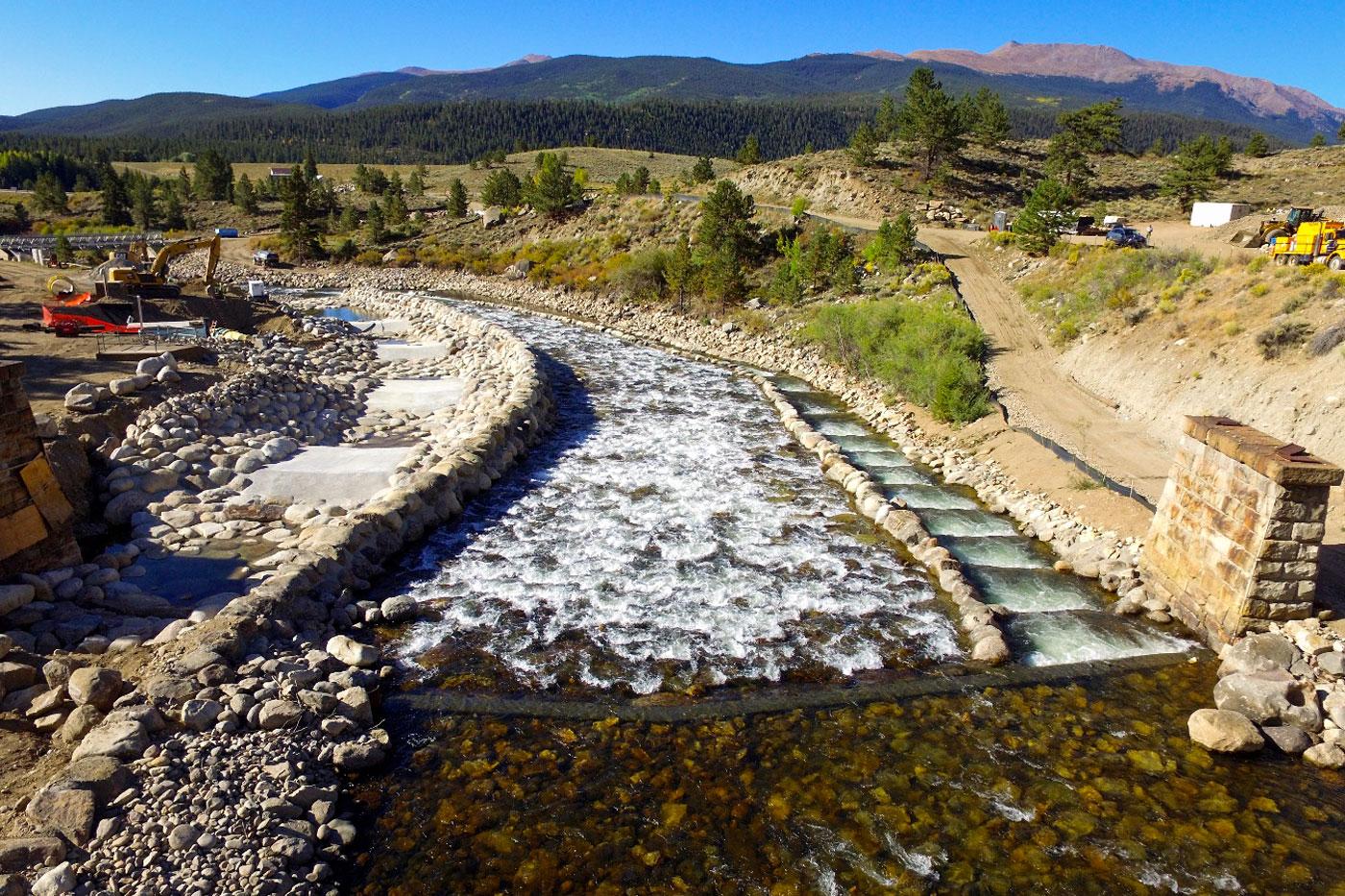
If Proposition DD passes this November, not only would sports betting become legal, but Colorado could secure a new way to fund “state water projects and obligations.”
State collections would be would be capped at $29 million a year from a tax on casino sports betting profits. Most of that would go to a cash fund to help implement Colorado’s Water Plan.
Some voters and environmental groups have concerns about how the tax money could be spent. Others see the funding as vital to adapting Colorado’s limited water supply to increased demand and climate change.
Hold On, What's Prop DD?
The Taxpayer's Bill of Rights has turned the search for funding in the state budget into an adventure. Most statewide votes on taxes fail, but voters have approved sin taxes in the past. Backers of DD hooked the idea of legalizing sports betting up to the need to provide funding for the water plan — and now you get to vote on it.
What Gets Funded?
The bill says the money could be spent on two things.
The first are grants under the Water Plan Grant Program which are submitted to the Colorado Water Conservation Board, the group in charge of the Colorado Water Plan. There are five different grant categories: agriculture, conservation and land use, engagement and innovation, environment and recreation, and water storage and supply.
The purpose of the program is to support projects that make progress on the goals identified in the Water Plan. Here’s the breakdown for fiscal year 2019-2020 from the board’s website:
- $3.75 million to facilitate the development of additional storage, artificial recharge into aquifers and dredging existing reservoirs to restore the reservoirs’ full decreed storage capacity.
- $1.75 million to provide technical assistance, project, or program funding for agricultural projects.
- $1.75 million to implement long-term strategies for conservation, land use and drought planning.
- $500,000 for water education, outreach and innovation efforts.
- $2.25 million for environmental and recreational projects.
Money for the water plan could also be spent to make sure the state is in compliance with its interstate water allocation compacts. Mexico and 19 states rely on Colorado Water.
“We are obligated to send a certain amount of water downstream to other states,” said Lauren Ris, the deputy director for the Colorado Water Conservation Board. “In situations where we're in a sustained drought, that can be really difficult to meet and potentially a pretty expensive for the state and also for water users.”
The amount allocated for compact compliance would be determined through the CWCB board and a legislative process, and the money could only be spent through legislation.
What’s Been Funded In The Past?
“We have been using cash funding from our agency to kind of kickstart this grant program, but it does not have a dedicated source of funding into the future,” Ris said. That’s where DD would come in.
Here’s the breakdown of how many projects have been funded in each category in the first two years of the program:
- Agriculture: 21 projects like the Acequia Conservation Initiative in the San Luis Valley
- Engagement and Innovation: 32 projects like a water education initiative at Adams State University in Alamosa
- Environment and Recreation: 29 projects like the Shady Island River Park project in Gunnison County
- Conservation and Land Use: 20 projects like the Denver One Water Plan
- Water Storage and Supply: 17 projects like the dredging of Prewitt Reservoir south of Sterling
Will This Be Enough Money For The Water Plan?
No. Even if the state could reach the capped amount of $29 million a year in taxes from sports betting, only some of that would go to the water plan — about $27 million. And it wouldn’t fully address the funding gap of $100 million a year for the next 30 years for the state to execute the water plan how it wants to.
Who’s For And Against Prop DD And The Water Plan?
The water plan says more storage is needed to close the supply-demand gap. That could be new dams, but Ris said funding can go to old ones too.
“One of the things that the water plan calls out is, is there a way to maximize the use of our existing reservoirs? To increase the supply capabilities of the existing buckets that we have out there?” she said.
Despite this, many key environmental groups support the Water Plan and Proposition DD, including American Rivers, the Environmental Defense Fund and Western Resource Advocates.
But WildEarth Guardians has come out against DD and a committee called Coloradans For Climate Justice has formed in opposition. They argue the money would be a slush fund for the state to spend on an “all-of-the-above plan" to manage water.
Mark Squillace, a professor at the University of Colorado Law School focused on water resources law and policy, said he’s glad the state has worked on a water plan but thinks it’s too protective of the prior appropriation system. The prior appropriation doctrine essentially means whoever was using water first in a “beneficial way” then owns that water.
“There are a lot of frankly, somewhat wasteful uses of water that have been allowed to continue for quite a long time on the grounds that those water rights are protected under this prior appropriation theory,” Squillace said.
Squillace argues that many Western states, including Colorado, haven’t done a good job at defining beneficial use in a way that promotes conservation. He recognizes that for political reasons, that’s hard to do.
“But as we face more demands for water and the need to manage our water better, I don't think we can really avoid paying attention to things like the beneficial use doctrine and doing a better job of conserving our water resources,” he said.
Squillace said he’ll likely vote no on Proposition DD because the money usually leads to engineer projects, and he doesn’t believe they’re what’s needed to address Colorado’s water issues.
Squillace acknowledges that there’s a lot to the plan, and it’s not just about storage and engineering projects. The Water Center at Colorado Mesa University works to educate people on Western Slope water challenges. Coordinator Hannah Holm has received state money before, but is now applying for funding under the grant program.
“Because we share this water supply with municipalities and farmers on the Eastern Slope, Western Slope folks have a strong interest in having that water on the Eastern Slope be used as efficiently as possible because that can reduce the overall demand on the water supply that we share,” Holm said.
Holm argues that a reliable revenue stream from Proposition DD would strengthen the focus brought about by the state’s water plan.
“There’s a greater recognition that agricultural uses, municipal uses, recreational uses and environmental needs, that they can't really be compartmentalize. They're all on the same streams,” she said.
Need Ballot Assistance? Check Out Our Quick Voters Guide For 2019









